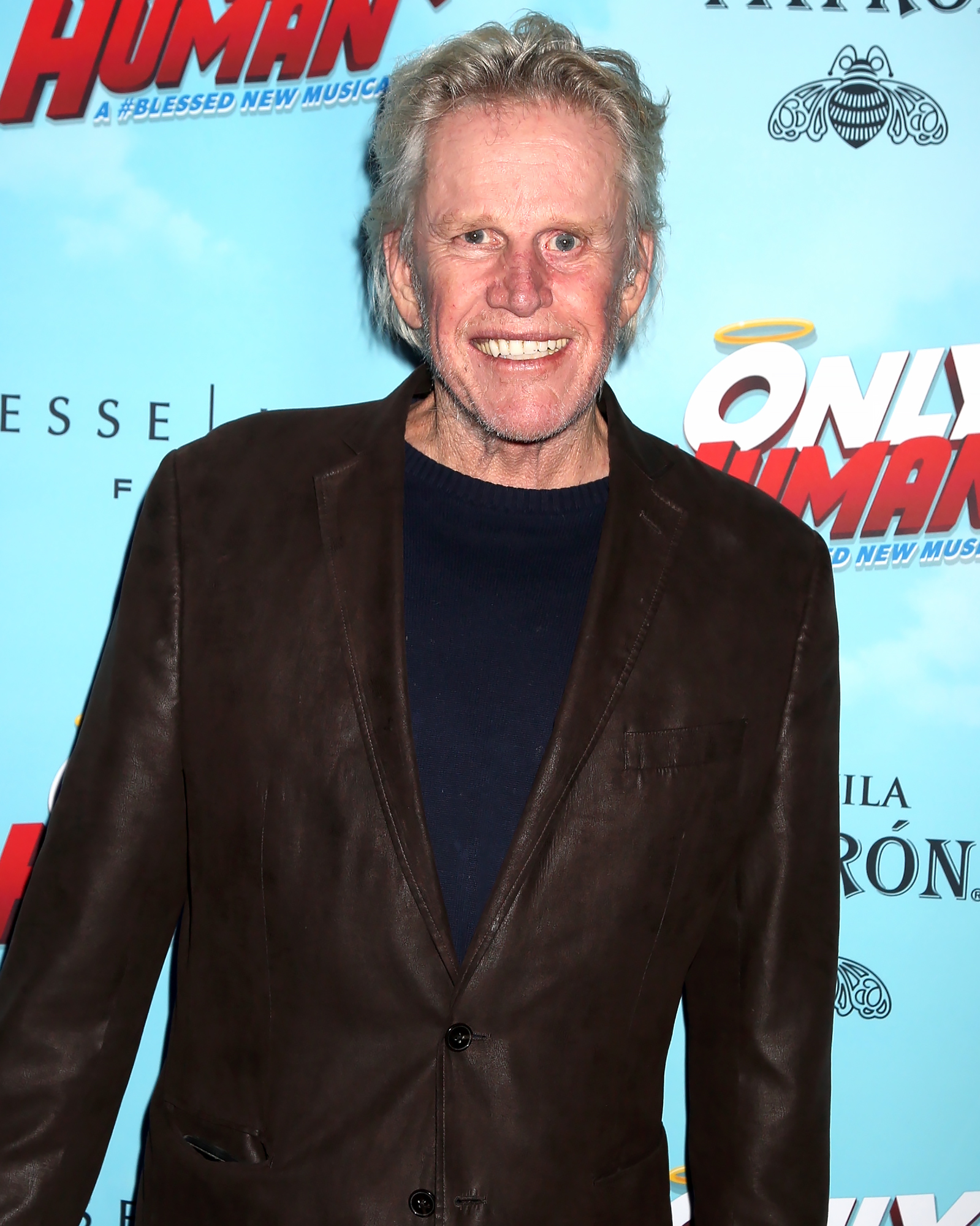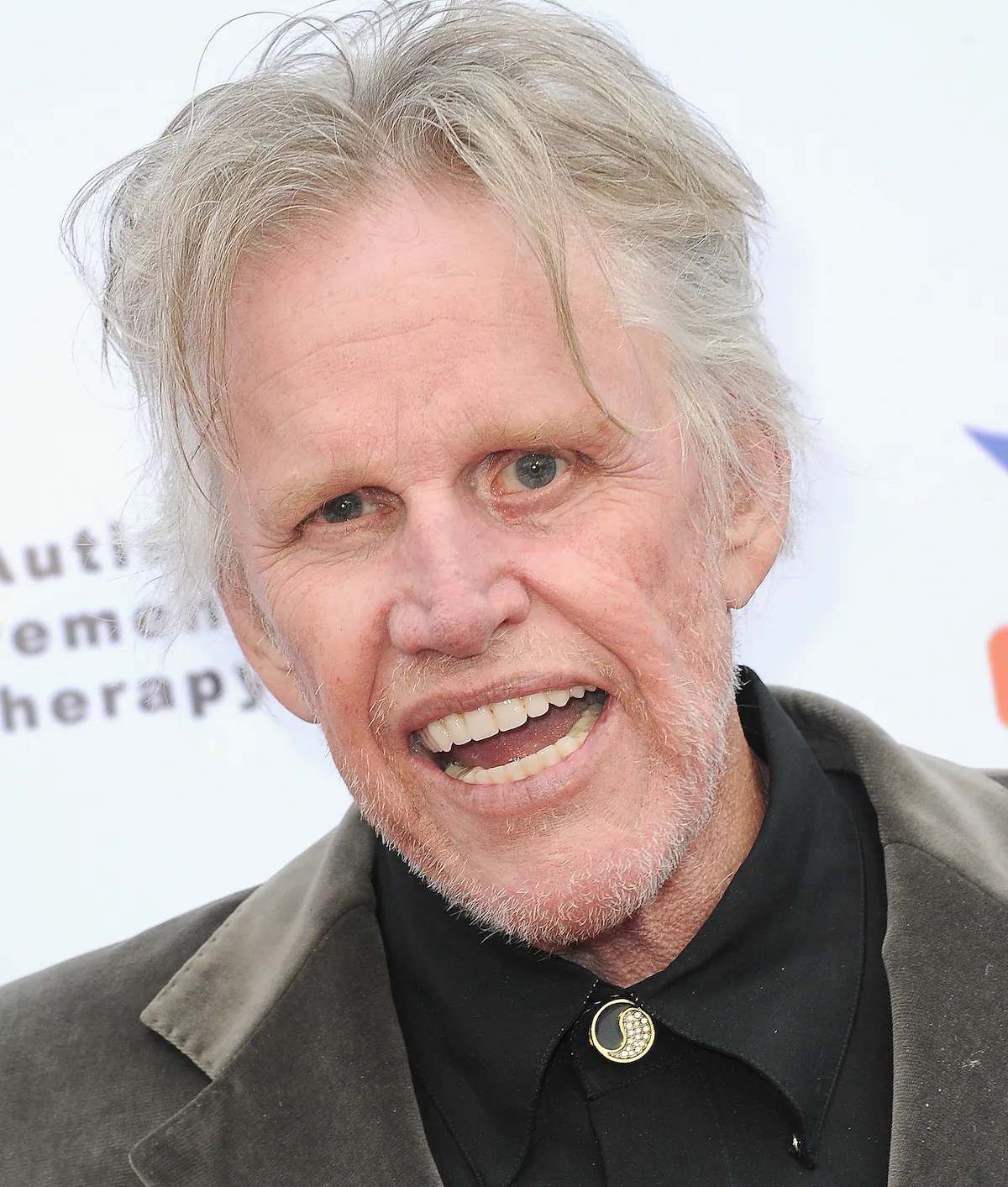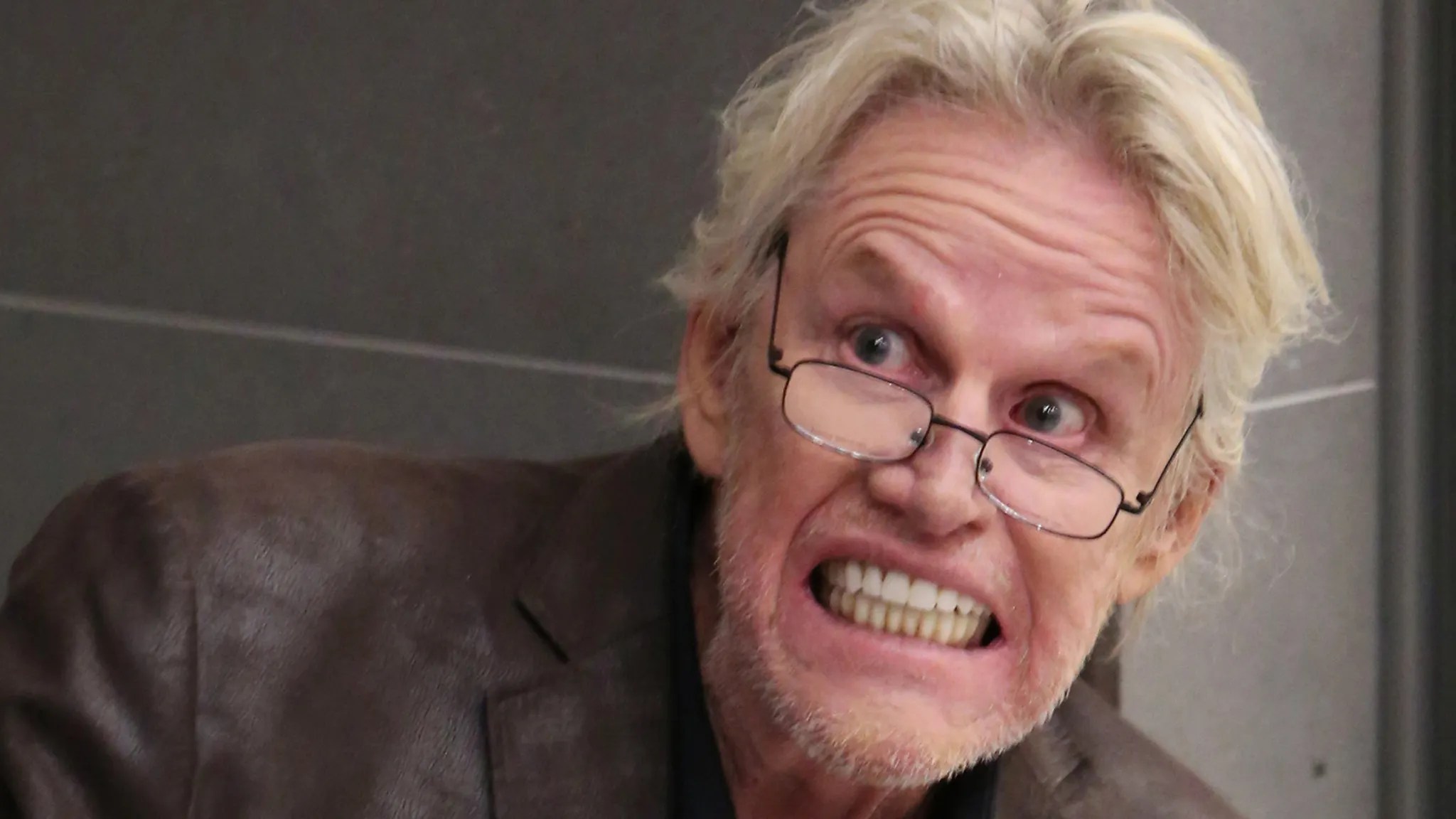Gary Busey's health problems refer to the various physical and mental health issues that the American actor has faced throughout his life. These include bipolar disorder, drug addiction, and a near-fatal motorcycle accident in 1988.
Busey's bipolar disorder has been a significant challenge for him, causing mood swings, impulsive behavior, and difficulty concentrating. He has been open about his struggles with the condition and has credited medication and therapy for helping him manage it. Busey has also struggled with drug addiction for many years, but he has been sober since 2009. The motorcycle accident in 1988 left Busey with a fractured skull and severe brain damage. He underwent extensive rehabilitation and eventually made a full recovery.
Despite his health problems, Busey has continued to act and has appeared in over 150 films and television shows. He is known for his eccentric personality and his distinctive voice and mannerisms. Busey's health problems have been well-documented in the media, and he has often spoken out about his experiences in the hope of helping others who are struggling with similar issues.
Gary Busey Health Problems
Gary Busey is an American actor who has faced various health problems throughout his life, including bipolar disorder, drug addiction, and a near-fatal motorcycle accident. These health problems have had a significant impact on his life and career.
- Mental health: Busey has been diagnosed with bipolar disorder, which causes mood swings, impulsive behavior, and difficulty concentrating.
- Addiction: Busey has struggled with drug addiction for many years, but he has been sober since 2009.
- Physical health: Busey was involved in a near-fatal motorcycle accident in 1988 that left him with a fractured skull and severe brain damage.
- Recovery: Busey underwent extensive rehabilitation after the accident and eventually made a full recovery.
- Impact on career: Busey's health problems have affected his career, but he has continued to act and has appeared in over 150 films and television shows.
- Public awareness: Busey has been open about his health problems in the media, and he has often spoken out about his experiences in the hope of helping others who are struggling with similar issues.
Busey's health problems are a reminder that mental health and addiction are serious issues that can affect anyone. It is important to seek help if you are struggling with these issues. Busey's story is also a testament to the power of recovery. With the right treatment and support, it is possible to overcome mental health and addiction problems and live a full and productive life.
| Name: | Gary Busey |
| Born: | June 29, 1944 |
| Occupation: | Actor |
| Known for: | Roles in films such as The Buddy Holly Story, Point Break, and Under Siege |
Mental health
Bipolar disorder is a mental illness that causes extreme mood swings, from mania to depression. People with bipolar disorder may experience periods of high energy and excitement, followed by periods of low energy and sadness. They may also have difficulty concentrating, making decisions, and controlling their impulses.
Bipolar disorder is a serious mental illness that can have a significant impact on a person's life. It can affect their relationships, their work, and their overall quality of life. Treatment for bipolar disorder typically involves medication and therapy.
In Gary Busey's case, his bipolar disorder has been a significant challenge for him. He has spoken openly about his struggles with the condition and has credited medication and therapy for helping him manage it.
Busey's experience with bipolar disorder is a reminder that mental health is just as important as physical health. Mental illness can affect anyone, regardless of their age, race, or socioeconomic status. It is important to seek help if you are struggling with mental health problems.
Addiction
Addiction is a serious mental illness that can have a devastating impact on a person's life. It can lead to physical health problems, mental health problems, and relationship problems. In Gary Busey's case, his addiction to drugs has been a major contributing factor to his health problems.
- Physical health problems: Drug addiction can lead to a number of physical health problems, including heart disease, stroke, liver damage, and kidney damage. In Busey's case, his drug addiction has contributed to his heart problems and his near-fatal motorcycle accident.
- Mental health problems: Drug addiction can also lead to a number of mental health problems, including depression, anxiety, and psychosis. In Busey's case, his drug addiction has contributed to his bipolar disorder and his difficulty concentrating.
- Relationship problems: Drug addiction can also lead to relationship problems. It can damage trust, intimacy, and communication. In Busey's case, his drug addiction has contributed to his failed marriages and his estrangement from his children.
Busey's story is a reminder that addiction is a serious illness that can have a devastating impact on a person's life. It is important to seek help if you are struggling with addiction. There are many resources available to help you get sober and stay sober.
Physical health
Gary Busey's physical health has been significantly impacted by a near-fatal motorcycle accident in 1988. The accident left him with a fractured skull and severe brain damage, which required extensive rehabilitation and has had lasting effects on his health.
- Traumatic brain injury (TBI): TBI is a major cause of disability and death in the United States. It can result from a variety of causes, including motorcycle accidents, car accidents, and falls. TBI can cause a wide range of symptoms, including cognitive impairment, memory loss, and difficulty with motor skills.
- Post-traumatic stress disorder (PTSD): PTSD is a mental health condition that can develop after a person has experienced a traumatic event, such as a motorcycle accident. Symptoms of PTSD can include flashbacks, nightmares, and avoidance of situations that remind the person of the trauma.
- Chronic pain: Chronic pain is a common problem for people who have suffered a TBI. It can be caused by damage to the nerves or muscles, or by the body's response to the injury. Chronic pain can make it difficult to work, sleep, and enjoy life.
Busey's experience with physical health problems is a reminder that traumatic events can have a lasting impact on a person's health. It is important to seek medical attention if you have been involved in a traumatic event, even if you do not think you are seriously injured.
Recovery
Gary Busey's recovery from his near-fatal motorcycle accident in 1988 is a testament to the power of rehabilitation and the human body's ability to heal. After suffering a fractured skull and severe brain damage, Busey underwent extensive rehabilitation, including physical therapy, occupational therapy, and speech therapy. With hard work and determination, Busey was able to make a full recovery and return to his acting career.
Busey's recovery is an important reminder that rehabilitation is an essential part of the healing process after a traumatic injury. Rehabilitation can help people to regain their physical function, cognitive skills, and emotional well-being. It can also help people to learn new ways to cope with their disabilities and to live full and productive lives.
The importance of rehabilitation is not limited to people who have suffered traumatic injuries. Rehabilitation can also be beneficial for people who have chronic illnesses or disabilities. Rehabilitation can help people to manage their symptoms, improve their quality of life, and achieve their goals.
If you are struggling with a disability or chronic illness, there are many resources available to help you get the rehabilitation you need. Talk to your doctor or case manager to learn more about rehabilitation options in your area.
Impact on career
Gary Busey's health problems have had a significant impact on his career. His bipolar disorder, drug addiction, and near-fatal motorcycle accident have all contributed to periods of unemployment and instability in his life. However, Busey has also shown great resilience and determination in overcoming these challenges and continuing to pursue his acting career.
Despite his health problems, Busey has appeared in over 150 films and television shows. He has played a wide range of roles, from leading men to supporting characters, and has become known for his distinctive voice and mannerisms. Busey's ability to continue working despite his health problems is a testament to his talent and dedication to his craft.
Busey's experience is a reminder that mental health and addiction problems do not have to define a person's life. With the right treatment and support, people with these conditions can live full and productive lives. Busey is an inspiration to others who are struggling with similar challenges.
Public awareness
Gary Busey's public awareness about his health problems is a significant aspect of "gary busey health problems" for several reasons. Firstly, it highlights the importance of mental health and addiction awareness, which often carry stigma and misunderstanding. By openly discussing his struggles, Busey helps to break down these barriers and encourage others to seek help if they need it.
Secondly, Busey's public awareness efforts provide a valuable resource for individuals and families affected by mental health and addiction issues. His willingness to share his experiences offers hope and support to those who may feel isolated or alone in their struggles. Busey's platform also allows him to advocate for better access to treatment and support services, which can make a tangible difference in the lives of those affected.
Furthermore, Busey's public awareness initiatives have a broader impact on society by contributing to a more informed and compassionate understanding of mental health and addiction. His openness helps to reduce stigma and foster a more inclusive and supportive environment for individuals with these conditions. This, in turn, can lead to positive changes in policies and attitudes, ultimately benefiting countless individuals and their families.
In conclusion, Gary Busey's public awareness about his health problems is an integral part of "gary busey health problems" due to its role in reducing stigma, providing support and resources, and promoting a more informed and compassionate society. His commitment to speaking out about his experiences is a testament to his resilience and his desire to make a positive difference in the lives of others.
FAQs on Gary Busey's Health Problems
This section addresses frequently asked questions and common misconceptions surrounding Gary Busey's health problems, providing concise and informative answers.
Question 1: What are the primary health challenges that Gary Busey has faced?
Gary Busey has been open about his struggles with mental health and addiction, including bipolar disorder and substance abuse. He also sustained a near-fatal motorcycle accident in 1988 that resulted in a fractured skull and severe brain damage.
Question 2: How has bipolar disorder impacted Busey's life?
Bipolar disorder has caused significant mood swings, impulsive behavior, and difficulty concentrating for Busey. He has credited medication and therapy for helping him manage the condition, but it has nevertheless affected his personal and professional life.
Question 3: What led to Busey's motorcycle accident?
The exact circumstances surrounding Busey's motorcycle accident are unknown, but it is believed that he was not wearing a helmet at the time. The accident resulted in severe head injuries that required extensive rehabilitation.
Question 4: Has Busey fully recovered from his brain damage?
Busey has made a remarkable recovery from his brain damage, but he still experiences some lingering effects, such as occasional memory loss and difficulty with multitasking. However, he has been able to return to acting and continues to lead an active life.
Question 5: How has Busey's addiction affected his career?
Busey's addiction to drugs and alcohol has led to periods of unemployment and instability in his career. He has been open about his struggles and has credited his sobriety, which he has maintained since 2009, with helping him to regain his health and career.
Question 6: What is Busey's current health status?
Busey continues to manage his bipolar disorder and remains sober. He is dedicated to his health and well-being and uses his platform to raise awareness about mental health and addiction issues.
In conclusion, Gary Busey's health problems have been well-documented and have had a significant impact on his life and career. However, he has shown great resilience and determination in overcoming these challenges and continues to be an active and vocal advocate for mental health and addiction awareness.
For further information and support on mental health and addiction, please visit the following resources:
- National Alliance on Mental Illness (NAMI)
- Substance Abuse and Mental Health Services Administration (SAMHSA)
Tips for Navigating Gary Busey's Health Problems
Gary Busey's public struggles with mental health and addiction serve as a reminder of the importance of seeking help and prioritizing well-being. Here are some tips for addressing similar challenges:
Tip 1: Acknowledge and Accept the Challenges
Recognize the presence of mental health and addiction issues without judgment. Acceptance is the first step towards seeking professional support and initiating recovery.
Tip 2: Seek Professional Help
Consult with qualified mental health professionals, such as therapists or counselors, who can provide guidance, support, and evidence-based treatments tailored to individual needs.
Tip 3: Explore Support Groups
Connect with support groups or online communities where individuals share experiences, offer encouragement, and provide a sense of belonging during recovery.
Tip 4: Prioritize Self-Care
Engage in activities that promote mental and physical well-being, such as exercise, meditation, and connecting with loved ones. Self-care practices help manage stress and foster resilience.
Tip 5: Educate Yourself
Gather information from reliable sources about mental health and addiction, including symptoms, treatment options, and recovery strategies. Knowledge empowers individuals to make informed decisions about their well-being.
Tip 6: Be Patient and Persistent
Recovery from mental health and addiction challenges is an ongoing process that requires patience, perseverance, and setbacks along the way. Stay committed to the journey and seek support when needed.
Tip 7: Advocate for Yourself
Communicate needs and concerns clearly to healthcare providers, family, and friends. Assertiveness helps ensure that individuals receive the appropriate care and support they require.
Summary:
Addressing mental health and addiction issues requires courage, self-awareness, and support. By following these tips, individuals can navigate challenges, prioritize well-being, and work towards recovery.
Conclusion
Gary Busey's health challenges have been well-documented, highlighting the complexities of mental health and addiction. His struggles serve as a reminder of the importance of seeking help, prioritizing well-being, and reducing the stigma surrounding these issues.
While Busey's experiences are unique, they resonate with countless individuals facing similar challenges. His journey towards recovery underscores the power of resilience, self-care, and the support of others. By embracing these principles, we can navigate mental health and addiction issues with greater understanding, compassion, and a commitment to personal growth.
Unveiling Shawn Wayans' Family: Discoveries And Insights
Unveiling The Enigmatic Pernell Roberts: Discoveries And Insights
Unveiling The Secrets Of Cadyn Rotunda's Wrestling Journey

Gary Busey News Us Weekly

Gary Busey net worth, son, career, accident, movies, teeth, now

Gary Busey Says He Once Died And Then 'Came Back'
ncG1vNJzZmirnaS8tbXErGWapaNoe6W1xqKrmqSfmLKiutKpmJydo2OwsLmOoJirsV2XwrSx2GafnpmcqbVuvNGomaWdnah7qcDMpQ%3D%3D